In Vietnam, we don’t just eat tasty. We eat well. Access to delicious, nourishing food is a constant source of happiness for Vietnamese. Fresh ingredients from Vietnam’s countryside farms, bountiful seas, and tropical forests are celebrated on tables across the country every day. And you're welcome to join these wonderful meals. Below are a few of the unique healthy ingredients we like to eat in Vietnam.
Điên điển flowers in Châu Đốc
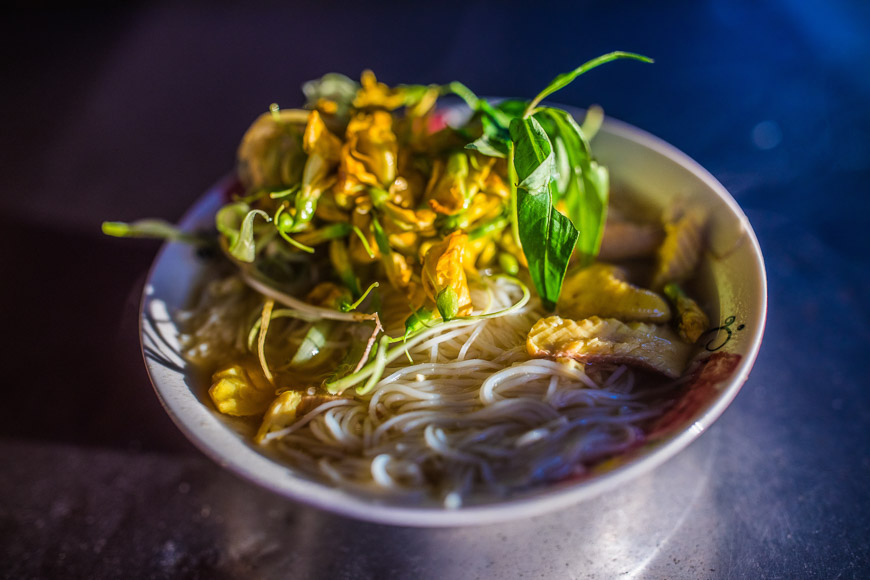
A branch of the Mekong River runs through Châu Đốc, giving life to this bordertown at the foot of Sam Mountain. In the morning, farmers wake up at dawn to harvest bright yellow điên điển flowers. These lovely flowers are a wonderful detox food. A fresh bunch of điên điển can cool the body, stimulate appetite, and soothe restless minds. Điên điển flowers are often paired with freshwater fish. Slurp up a bowl of Châu Đốc's iconic fish noodles, or gather around a steaming fish and vegetable hot pot.
Dragon chicken in Đông Tảo
Unlike Vietnam’s mythical dragons, dragon chickens in Đông Tảo -- a small town in northern Vietnam -- are a real, vitamin-rich source of protein. Leaner than your usual poultry, these birds also contain less cholesterol. In Vietnam, eating farm-raised dragon chickens is said to reduce stress and promote quality sleep. Đông Tảo dragon chickens are best cooked using simple methods. Firm yet tender with a nice crunch on the skin, a plate of grilled or steamed dragon chicken grilled with lime leaf makes a delicious meal with rice and vegetables.
Bitter melon in Long An
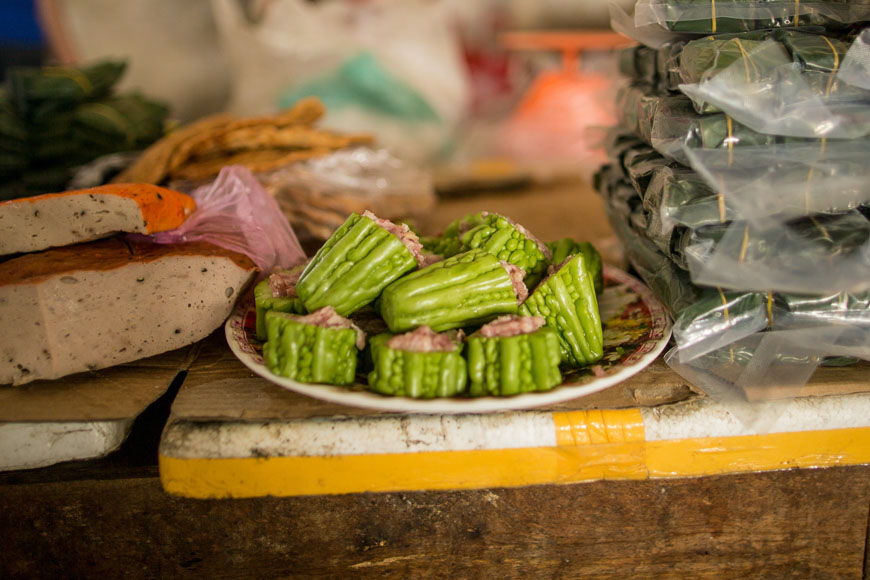
The verdant Mekong Delta is home to many of Vietnam's freshest vegetables. Long An's river banks, rich in sediments, are perfect for growing nutritious produce, including the superfood of the region: bitter melon. This vitamin-packed, immune-boosting vegetable has cooling properties and helps to cleanse the digestive system. Bitter melon is an acquired taste. But cooks in the Mekong Delta have found ways to embrace this ingredient in dishes such as bitter melon soup and stuffed bitter melon.
Honey sweet potato in Đà Lạt
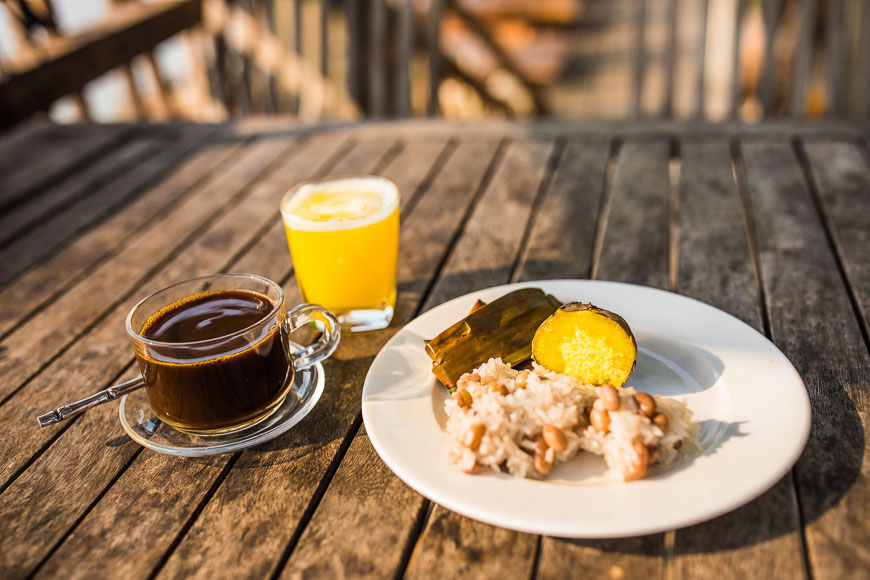
Cold nights in Đà lạt call for honey sweet potatoes roasted on an open fire. Rich in vitamins and fiber, sweet potatoes protect your digestive tract, balance blood sugar levels, and offer a healthy dose of magnesium. While Vietnamese all over the country enjoy steamed sweet potatoes, honey sweet potatoes can be bought hot off the grill in stalls around Đà Lạt’s central market. One bite into the moist, creamy khoai lang mật and you'll understand why locals felt the need to add ‘honey' to its name.
Maluma avocado in Đắk Lắk
Maluma avocado trees flourish in the red basaltic soil of Đắk Lắk in Central Vietnam. Unique weather conditions and mineral components make these avocados incredibly nutritious and tasty, a fact local farmers take great pride in. Loaded with folate, essential vitamins, and fatty acids, a Đắk Lắk avocado is nature’s gift to the highlands’ residents and visitors. Visit Đắk Lắk from May to August to catch the avocado season. Take a spoon and scoop the light, creamy flesh straight from its skin and let it melt on the tip of your tongue.
Arrowroot vermicelli in Cao Bằng
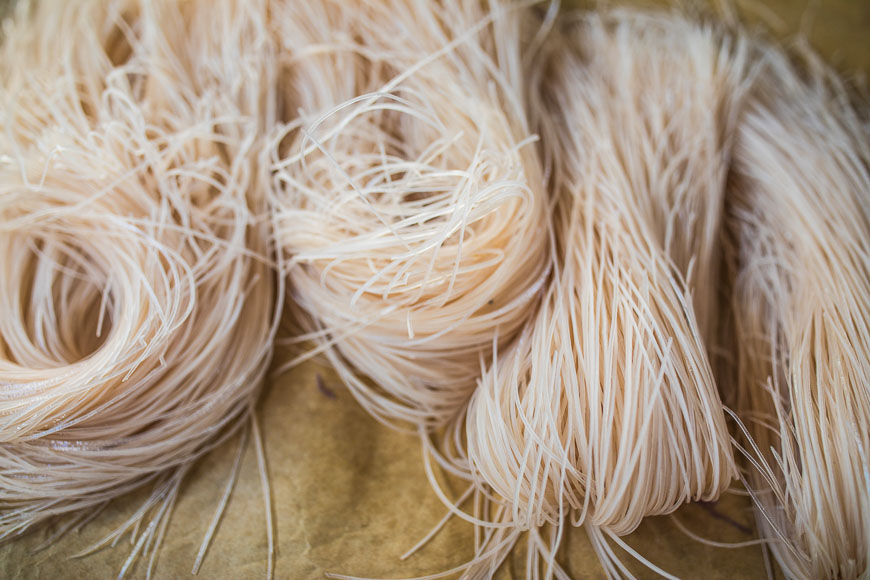
Vermicelli is an ideal food for weight watchers. These thin noodles are low in calories, contain little to no fat, and are a great alternative noodle for those who want to lower their carbohydrate intake. Made from arrowroot, miến dong is gluten-free and high in fiber. This Cao Bằng vermicelli will keep your metabolism in check while providing energy for the whole day. Trace miến dong back to its roots at beautiful Phia Đén Mountain, to learn how locals make the noodle in a demanding step-by-step process.
Lotus root in Huế
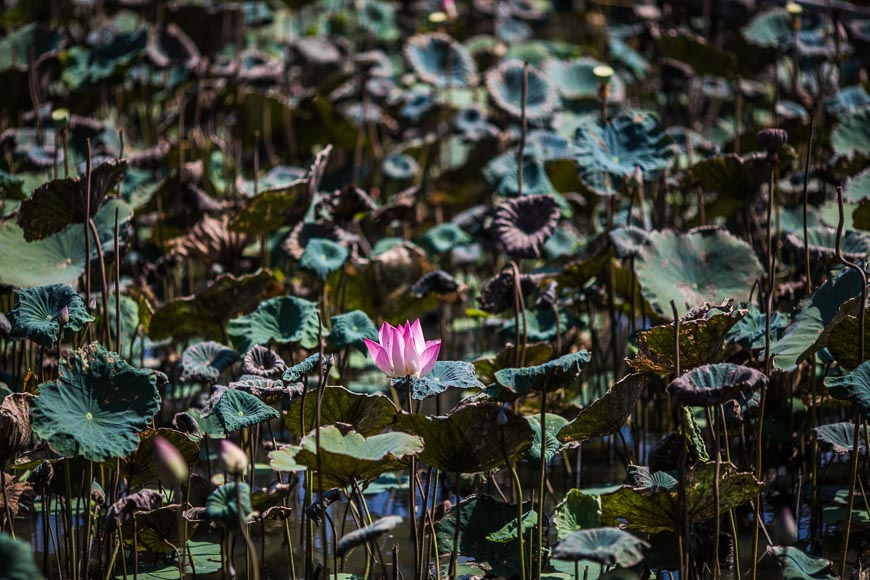
There is more to Vietnam's national flower than meets the eye. From seeds to petals, every part of the beautiful lotus can be used in cooking. In Huế, the former imperial capital, lotus roots used to be prepared for kings and queens. Lotus roots are known to boost blood circulation, calm the mind, and nurture skin and hair. In Vietnam, lotus stems are often served with herbs in light salads. When in Huế, pour yourself a hot cup of tea and enjoy candied lotus root as a sweet, comforting snack on a lazy summer day.




